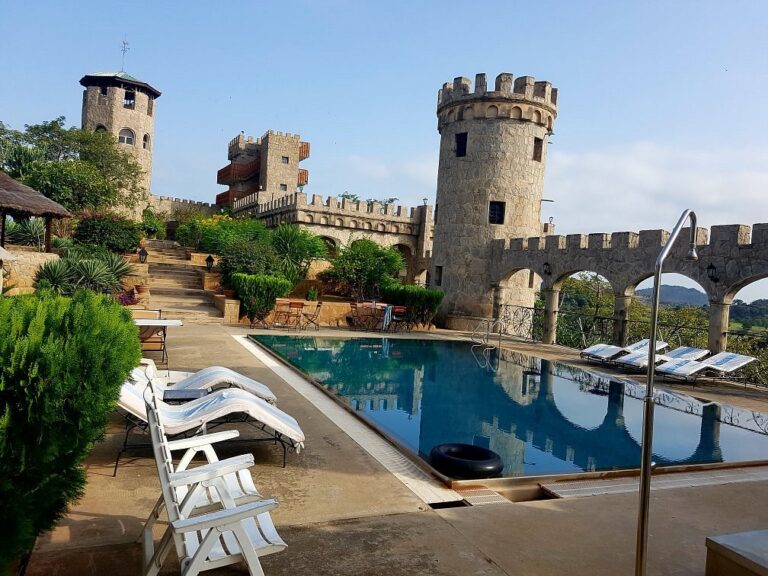
Discovering Kano: Top Attractions and Cultural Highlights
Kano State, located in northern Nigeria, is a cultural and historical treasure trove. Known as the “Centre of Commerce,” Kano boasts ancient landmarks, thriving markets, and a vibrant cultural scene. Its deep-rooted history and traditions make it one of Nigeria’s most fascinating destinations. Here are the top attractions and cultural highlights that make Kano a must-visit.
1. Kano City Walls

The Kano City Walls are one of the most iconic historical landmarks in Nigeria. These ancient walls, built during the 14th century, were designed to protect Kano from invaders and played a significant role in the city’s history as a trade hub. Although parts of the walls have eroded, they remain a symbol of Kano’s heritage.
Highlights:
- Explore the ancient gates, including Kofar Mata and Kofar Na’isa.
- Learn about the historical significance of the walls in Kano’s defense and trade.
- Capture stunning photos of this UNESCO World Heritage contender.
2. Kurmi Market
Established in the 15th century, Kurmi Market is one of Africa’s oldest and busiest markets. Located in Kano city, this bustling market offers a wide range of goods, from handcrafted leather goods and textiles to traditional spices and jewelry. It’s a vibrant hub for commerce and a great place to experience local life.
What to Buy:
- Traditional Kano leather goods, such as bags and sandals.
- Local textiles, including handwoven Akwete fabrics.
- Spices, herbs, and handmade jewelry.
3. Emir’s Palace
The Emir’s Palace, also known as the Gidan Rumfa, is the residence of the Emir of Kano. Built in the 15th century by Emir Muhammadu Rumfa, this palace is a masterpiece of traditional Hausa architecture. Visitors can admire its design and learn about the history and culture of Kano’s monarchy.
Visitor Experience:
- Observe the intricate designs and traditional motifs of the palace.
- Learn about the Emir’s role in governance and Kano’s cultural preservation.
- Attend cultural ceremonies if visiting during special occasions.
4. Dala Hill
Dala Hill is the historical birthplace of Kano and holds great significance in the city’s history. The hill was a settlement site for early inhabitants before Kano developed into a major trade city. Climbing the hill offers panoramic views of the city and a chance to connect with Kano’s roots.
Activities:
- Hike to the top of the hill for stunning views of Kano city.
- Learn about the early history and significance of the site.
- Visit nearby landmarks, including traditional wells and shrines.
5. Gidan Makama Museum
The Gidan Makama Museum is located in a 15th-century building that once served as a royal residence. This museum is dedicated to preserving Kano’s cultural and historical heritage. Its exhibits include traditional artifacts, royal regalia, and displays on Hausa and Fulani history.
What to See:
- Traditional Hausa architecture and art.
- Artifacts and exhibits detailing Kano’s history and culture.
- Royal regalia and historic weapons used by past rulers.
6. Kano Dye Pits
The Kano Dye Pits, also known as the Kofar Mata Dye Pits, are among the oldest and most famous dye pits in Africa. Dating back over 500 years, these pits are still used by artisans to create vibrant indigo-dyed fabrics using traditional methods. The site offers a glimpse into Kano’s rich textile heritage.
Why Visit:
- Witness traditional fabric dyeing techniques.
- Purchase authentic hand-dyed fabrics as souvenirs.
- Learn about the significance of indigo dyeing in Hausa culture.
7. Tiga Dam
Located about an hour’s drive from Kano city, Tiga Dam is a popular recreational spot for locals and tourists. Built in the 1970s, this dam serves as a water source for irrigation and provides opportunities for fishing, boating, and picnicking.
Activities:
- Enjoy boating and fishing on the reservoir.
- Relax with a picnic by the water’s edge.
- Explore the scenic surroundings and watch for bird species.
8. Falgore Game Reserve
The Falgore Game Reserve, located in the southern part of Kano State, is a vast wildlife reserve known for its savannah landscapes and diverse wildlife. Visitors can enjoy safaris and guided tours to see animals such as antelopes, baboons, and various bird species.
Wildlife to See:
- Native antelopes, baboons, and warthogs.
- A variety of birds, ideal for birdwatching enthusiasts.
- Guided nature walks and eco-tourism experiences.
9. Ado Bayero Mall
For a modern shopping and entertainment experience, visit the Ado Bayero Mall, the largest shopping mall in Kano. The mall offers a mix of local and international brands, a cinema, and a food court. It’s a great place to relax after exploring Kano’s historical sites.
What to Do:
- Shop for clothing, electronics, and souvenirs.
- Watch the latest movies at the cinema.
- Enjoy local and international cuisine at the food court.
10. Traditional Cuisine of Kano
Kano is known for its rich culinary traditions, which reflect the Hausa and Fulani cultures. Must-try dishes include Tuwo Shinkafa (rice pudding), Kilishi (spiced dried meat), and Miyan Kuka (baobab leaf soup). Many local restaurants and food stalls offer these delicacies, giving visitors a true taste of Kano.
Must-Try Dishes:
- Tuwo Shinkafa with Miyan Taushe: A pumpkin-based soup served with soft rice pudding.
- Kilishi: A spicy jerky made from dried and seasoned meat.
- Fura da Nono: A refreshing millet and milk-based drink.
Conclusion: Experience the History and Culture of Kano
From the ancient Kano City Walls to the vibrant Kurmi Market and the artistic heritage of the Kano Dye Pits, Kano State offers a unique blend of history, culture, and modernity. Whether you’re exploring its historic landmarks, enjoying local delicacies, or shopping in bustling markets, Kano provides an unforgettable journey through Nigeria’s rich past and dynamic present.
Plan your visit to Kano State and discover the charm, heritage, and hospitality of this iconic northern Nigerian city.


